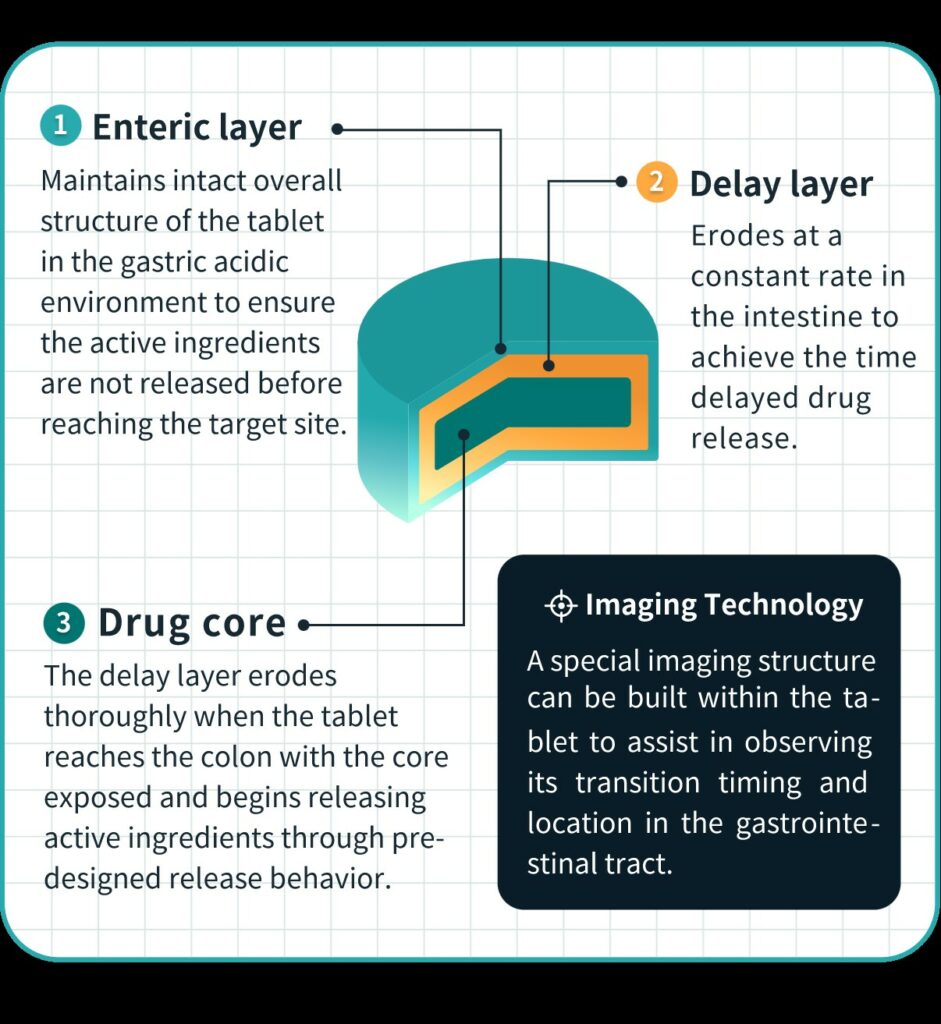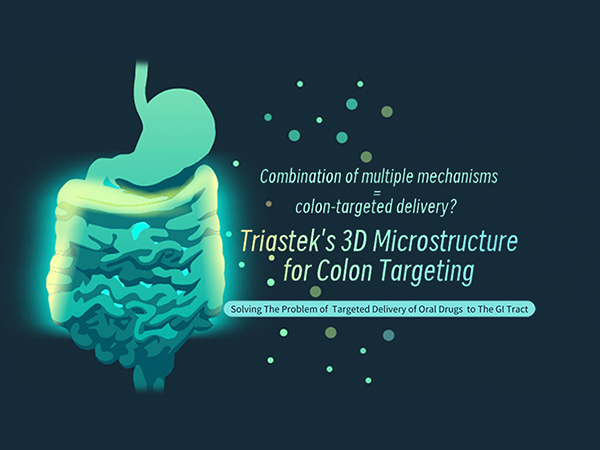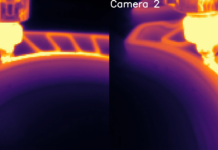Triastek, Inc, a medical 3D printing company developing a 3D printing process for the pharmaceutical industry, recently completed a first in human (FIH) study for its third 3D printed drug product, T21. T21 would support the treatment of moderate to severe ulcerative colitis (UC). Developed using Triastek’s 3D Microstructure for Colon Targeting (3DμS-CT), T21 is designed to deliver the drug directly to the colon. This is the first time the colon targeting platform has been verified in human trials.
In medicine, oral therapy is generally the preferred method of drug administration by patients due to its safety, patient compliance and avoidance of injections and related pain, but the digestive environment and mucosal transport mechanisms across the gastrointestinal tract can differ substantially among individuals. Additionally, traditional approaches to developing oral medications often lead to the release of the medication in other parts of the gastrointestinal system before it reaches the colon. As such, it has historically been difficult to achieve precise delivery of drugs to specific locations in the gastrointestinal tract.
To solve the problem of targeted and precise delivery of oral drugs to the gastrointestinal tract, Triastek independently developed its third 3D printed drug product, T21, an oral colon-targeted delivery drug for moderate to severe UC. On November 18, 2022, T21 received clearance for its Investigational New Drug (IND) application from the United States Food and Drug Administration (FDA) through the 505(b)(2) pathway.
The original drug is an oral Janus kinase (JAK) inhibitor called tofacitinib. Following the approval of T21, Triastek launched a FIH study in Q1 of 2023 to verify the colon-targeting of T21 after oral administration. At present, T21 has completed the FIH study, and imaging results have confirmed that T21 tablets are precisely delivered to the target site – the colon – for the drug release.
How our colon-targeted formulation platform achieves precise drug delivery
Triastek’s R&D team used the 3D Microstructure for Colon Targeting (3DμS-CT) to design a 3D printed prototype formulation with various combinations of multiple release control mechanisms to manage the effects of time and pH, permitting a reduction in the impact of individual gastrointestinal differences on drug delivery and to achieve a more precise delivery to the colon region of the gastrointestinal tract. The FIH tested T21 tablet is composed of an enteric layer around a delay layer, both of which protect the drug core (containing active ingredients) located in the tablet middle.
 The pH-dependent enteric-coated layer maintains the intact of the overall structure of the tablet in the gastric environment. After the tablet is passed through the pylorus to the small intestine, the enteric-coated layer is rapidly eroded, exposing the delay layer. The time-dependent delay layer continues to erode at a constant rate in the intestinal tract. Researchers control the erosion time by adjusting the thickness of the delay layer of pre-selected polymer material(s). After the delay layer is completely eroded when entering or within the ascending colon, the drug is fully released out from the drug core to the colon target. T21 FIH Three-dimensional Structure Design In order to assist in evaluating this process, Triastek researchers designed a unique imaging structure within the T21 tablet so that X-rays can be used to observe its transition timing and location in the gastrointestinal tract. This imaging structure aids in ascertaining whether the drug is successfully released to the target colon site.
The pH-dependent enteric-coated layer maintains the intact of the overall structure of the tablet in the gastric environment. After the tablet is passed through the pylorus to the small intestine, the enteric-coated layer is rapidly eroded, exposing the delay layer. The time-dependent delay layer continues to erode at a constant rate in the intestinal tract. Researchers control the erosion time by adjusting the thickness of the delay layer of pre-selected polymer material(s). After the delay layer is completely eroded when entering or within the ascending colon, the drug is fully released out from the drug core to the colon target. T21 FIH Three-dimensional Structure Design In order to assist in evaluating this process, Triastek researchers designed a unique imaging structure within the T21 tablet so that X-rays can be used to observe its transition timing and location in the gastrointestinal tract. This imaging structure aids in ascertaining whether the drug is successfully released to the target colon site.
Professor Xiaoling Li, co-founder and chief scientific officer of Triastek, said. “The first in human study data with T21 verifies the precise colon delivery capability of the MED process, and this platform is poised to become the novel drug delivery system of choice for colon targeted new product with either local efficacy or systemic absorption. We hope to continue showcasing how Triastek’s 3D printing processes [Melt Extrusion Deposition (MED) platform] can bring technical solutions to pharmaceutical companies for efficient product development of optimized drug delivery, ultimately leading to the ability to provide patients with more clinically valuable medicines.”
Remember, you can post job opportunities in the AM Industry on 3D ADEPT Media free of charge or look for a job via our job board. Make sure to follow us on our social networks and subscribe to our weekly newsletter : Facebook, Twitter, LinkedIn & Instagram ! If you want to be featured in the next issue of our digital magazine or if you hear a story that needs to be heard, make sure to send it to contact@3dadept.com






